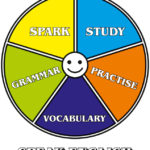If Muslims want to become socio-intellectually relevant in today’s world, they will have to acquire a desirable level of linguistic felicity to compete with others in the arena of intellectual discourse.
By Syed H.Hashmi
When we consider English studies in our schools and colleges, we find they are in a state of woeful neglect. This is a problem that needs to be addressed if education has to evolve into a meaningful academic experience. The importance of English language as the medium of instruction and the linguistic means of processing and acquiring knowledge gives it pedagogic pre-eminence that cannot be ignored.
Particularly in Muslim institutions of learning, there is a greater need for improvement in the teaching and learning of English. In the world of academia, it is accepted as axiomatic and regarded as an article of faith that proficiency in the English language gives us a competitive edge in all aspects of communication. If Muslims want to become socio-intellectually relevant in today’s world, they’ll have to acquire a desirable level of linguistic felicity and proficiency to compete with others in the arena of intellectual discourse.
Role of Teachers
The faculty members in our academic institution must realize their responsibility and seek to improve their competence as facilitators of knowledge.The role of teachers in the life of their pupils is both instructive and formative. For their students, they are mediators of knowledge and catalysts of intellectual growth.The language the teachers use as instructional medium should reflect their competence as teachers. For language is not only a vital mechanism of expression of meaning, but also a significant extension of ourselves. Therefore a good teacher’s personality and conduct would exert a beneficial influence on his/her students.
Language teachers should be aware of the fact that language learning involves both our receptive and productive faculties. Reading and listening sensitize our receptive faculties while writing and speaking stimulate our productive skills. Exposure of our receptive faculties to a rich variety of language input will create a repository of linguistic strength.Engaging in productive activities of writing and speaking will draw their strength from the generative character of our linguistic resource. This mutually energizing interplay of receptive and productive skills ensures a sound and resilient language proficiency.
A Perpetual Investment
There are established guidelines for the acquisition of language proficiency that can be accessed through expert help and resource. To make both teaching and learning meaningful, and a satisfying experience, we must be engaged in a continual quest for excellence in intellectual attainments. In life, there are ever-evolving dimensions of knowledge and we never cease to learn.
Both the ‘spoken’ and the ‘written’ modes of English have distinctive features and peculiarities that give the English language a unique identity and character.Let us focus on some basic facts of English language learning that merit consideration. Let me mention here some salient points related to the teaching and learning of English. Paying attention to these points will prove to be beneficial both to the teaching faculty and students.
Unlike French, Italian, Spanish and Turkish, English is not a syllable-timed language. It is a stress-timed language. In English, it is the accent that overrides syllabic isochronism. This vital feature of the English language is inherited by the native speaker, but must be learned and acquired through practice by the non-native speaker. In our country, we are accustomed to syllable based speech as both Urdu and Hindi are syllable-timed languages. We must understand that pronunciation of English words that leans towards syllabic periodicity often mars intelligibility. There are words in English where the meaning of the word as noun, adjective or verb is determined by the placement of stress at a particular point.
An Elusive Dream
In order to become proficient in the spoken language, it is important for the faculty to assiduously study the ‘stress patterns’ of English vocabulary. Of course, in the Indian environment, a native-like proficiency is an elusive dream. However, through sustained practice and training, we can overcome barriers to intelligibility of communicative intent. I don’t mean that we rigidly follow the modulations of ‘Received Pronunciation’ and act as arbiters of elocution. What I mean is that we should try to adhere to the established scheme of accentuation so that our communicative intent is not impaired.
The choice of an appropriate linguistic style pertinent to the situation at hand gives you a desired facility of expression. This is referred to by linguists as ‘register’. Familiarity with different registers enhances our proficiency in the language and adds to our linguistic versatility and flexibility.Studying literature to improve proficiency in English is highly recommended. literature is an inexhaustible resource of varieties of English and comprises a profusion of register. Fiction and drama are genres where we find a rich diversity of registers both formal and informal. Whereas compositions involving intellectual debate and dialectical reasoning such as criticism, analytical writings and literary essay give us an abundance of formal registers.We should encourage our students to read more than what is prescribed in the syllabus. A diverse reading material will help add a competitive nuance to their language proficiency.
Ideally, drawing up a judicious scheme for instructional syllabuses and course design will help in providing a sound foundation for the educational process. However, we frequently find ourselves constrained by the rigidity built in the courses ‘officially’ prescribed for study. In this situation, the resilience of the teacher in planning the course of instruction will circumvent the problems to a great extent. To accomplish all this, we need an enthusiasm for perfection and a desire for excellence.To strive and struggle in the path of knowledge is ‘ibadah’ and the efforts invested therein are blessed by Allah.


COMMENTS